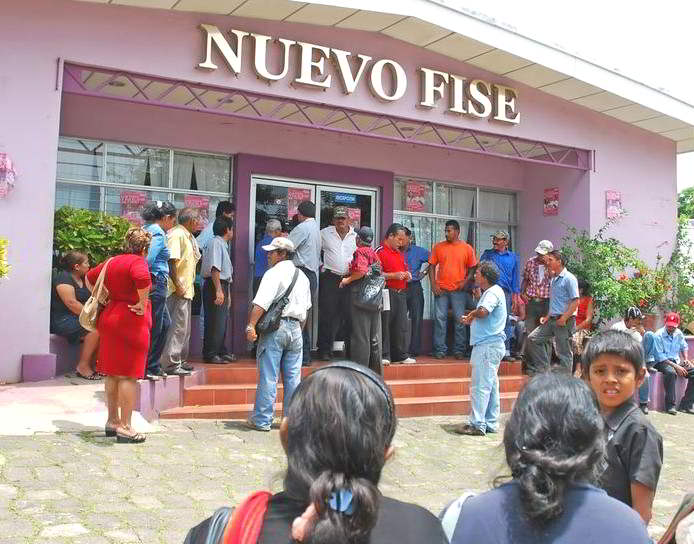Petroperu It remains a burden for the State and all taxpayers. For example, in the first half of this year, the state-owned company reported a loss of 452 million dollars, increasing its negative results by 71.8 million dollars compared to the same period last year. All this because the company is not able to generate enough cash to operate.
LOOK: Petroperú: ComexPerú urged the Executive to make a decision
Furthermore, the oil company currently has a debt of 8.47 billion dollars, equivalent to 7.46 times its equity (in other words, Petroperú’s debt is equivalent to 7 and a half ‘Petroperús’). Given the company’s situation, the board of directors proposed three measures:
The first is to do more of the same. That is, to pour money into Petroperú without demanding or ensuring credible organizational changes.
The second is to accept the bankruptcy of the state-owned company with the corresponding legal and financial obligations.
The third, which is the alternative developed by the new board, consists of opting for a credible restructuring of Petroperú, which involves an injection of capital conditioned on the implementation of organizational efficiency actions, backed by a solid legal framework that reinforces future actions and ensures the attraction of private capital to strengthen the transformation of the oil company.
Experts rule out option one and give their reasons for going with the other two alternatives with some additions.
Immoral
The first option, which is to continue injecting resources into the oil company without demanding or ensuring credible organizational changes that seek to make the organization more efficient, should not even be on the list of alternatives, experts say.
Alejandro Falla, partner at Bullard Falla Ezcurra +, said that continuing to inject public resources into Petroperú is not only absolutely inefficient, but also immoral. He considered that no argument in favor of this measure stands up to an objective analysis.
LOOK: Ipsos survey: 42% say they have not been able to eat on occasions due to lack of money
“Injecting more resources into the oil company means leaving it to do so in other activities that surely generate more well-being for people, such as schools, teachers, nurses, police, etc.,” Falla said.
He said that providing public aid to a company creates distortions to competition in the market. “In Europe, where there is a regime to supervise State Aid, this type of bailout would probably be prohibited only because of the distortions generated to competition,” he said.
“The first option must be ruled out outright,” added former Economy Minister Carlos Oliva. According to Oliva, this option should not even be included among the alternatives.
“I anticipated that maintaining the current situation of Petroperú was not viable. As it is, if the same policies continue, it has no direction, so a fundamental change is required,” said former Minister of Economy Luis Valdiviezo.
Close or restructure?
There are discrepancies among the experts consulted regarding the alternatives of closing or restructuring Petroperú.
Valdivieso said that bankrupting or liquidating Petroperú would mean ignoring the fact that there are parts of the oil company’s activity that are profitable, as well as others that are “a pure waste of money.”
For Oliva, closing Petroperú is only an option if the economic cost of restructuring the oil company is too high. However, he points out that the political cost of closing could be greater than that of restructuring the company.
“Either option (closing or restructuring) will have a political cost. If you go for the option of closing Petroperú, the political cost could even be higher. The situation has led to the fact that a cost will have to be assumed in any case,” said Oliva.
However, for Falla, liquidating or closing Petroperú is the right thing to do, since it is the path followed by any company that cannot pay its debts. He explained that in a situation like this, creditors take control and decide what to do with the company’s assets and they do not receive help from the State to keep it afloat.
“There is no objective reason for this case to be treated differently. Unfortunately, the MEF (which is at the centre of any decision) is trapped in its own labyrinth,” Falla said.
“For many years (the State) has given free drinks to a drunk. It has supported the drunk’s debts. If the drunk does not pay his debts, he will be dragged into the problem by the creditors. And the bartender will not allow that. It would be the right thing to do (to liquidate Petroperú), but I do not think it will happen,” he added.
The path of restructuring
While the opinion on the restructuring path of the oil company proposed by the current board is favorable, experts say the proposal is incomplete.
According to Valdivieso, the restructuring alternative proposed by the board indicates that anything that is done will require money. Therefore, he said that the decision must involve identifying the company’s activities that are profitable. Secondly, he said, identifying the assets that can be privatized or sold because they will not participate in the company’s activity and, thirdly, changing the management.
“Independent management is required, without political pressure or pressure to have immediate results, but rather to follow a business plan,” said Valdivieso, adding that the number of workers at the oil company should also be reduced.
“I think it is important to have a plan and at the same time to be able to afford it. The money that has to be put in will have to be against results. It cannot all be given at once. It has to be given against specific actions,” he said.
According to Oliva, in order for the board restructuring plan to be considered an option, the amount of the capital injection must be known, as well as the existence of a political decision to make the necessary changes in the oil company.
“Without knowing the nature of the changes, I cannot estimate a capital contribution number, but for it to be viable, this number should be extremely low and, in any case, we should see if there are other options other than capital contributions. There are always issues of guarantees, negotiations that can be made with creditors. There are several ways to deal with this type of gap, which does not necessarily involve taking cash out of the wallet,” Oliva commented.
For Falla, the restructuring option only makes sense if the decision is to “put the house in order” for its sale.
“If there is no decision to sell, this is a scam, guys,” Falla concluded.
Take advantage of cyber HERE and receive our digital newspaper from S/ 54 for a whole year!
RECOMMENDED VIDEO


















